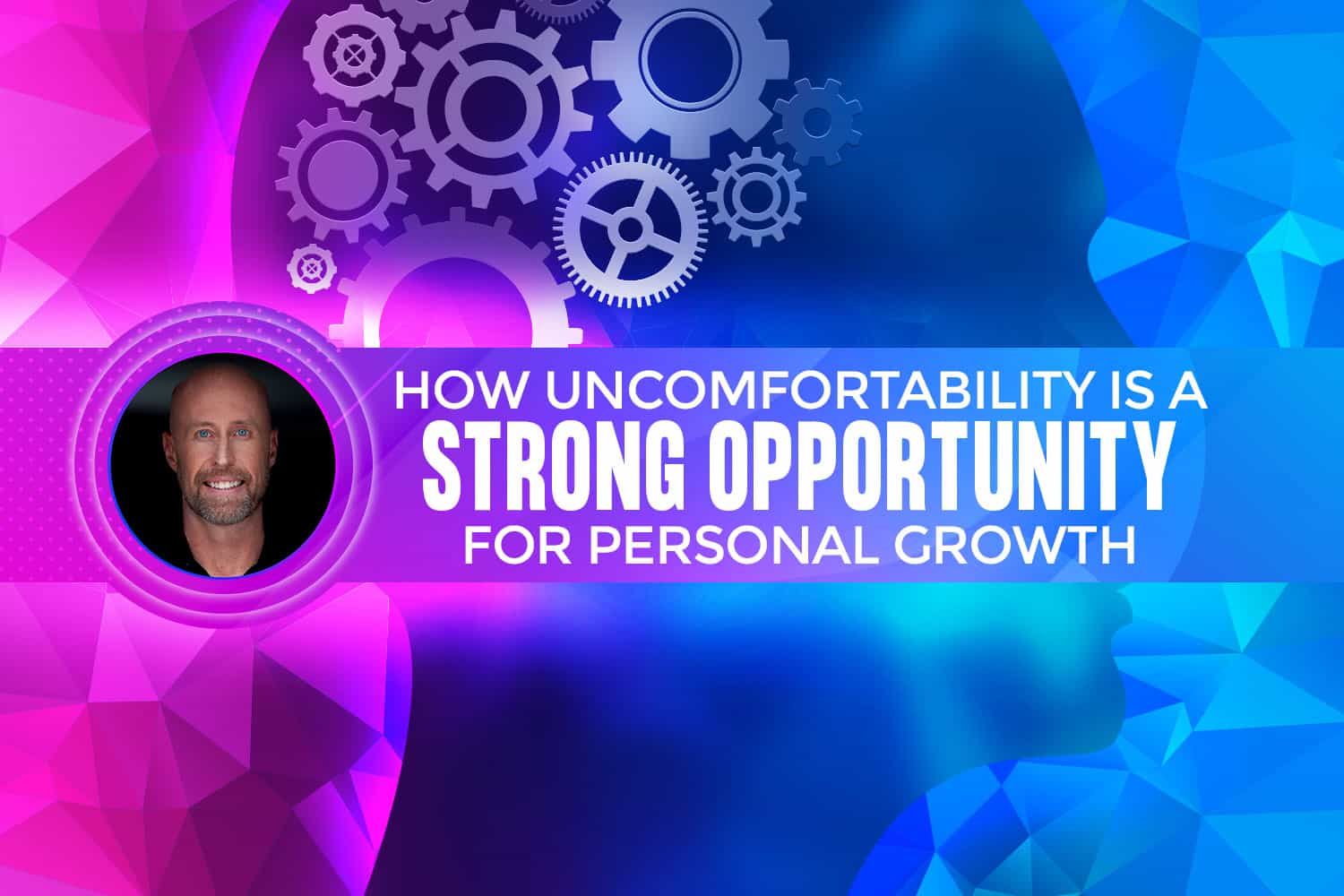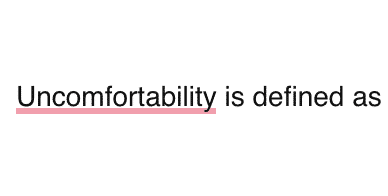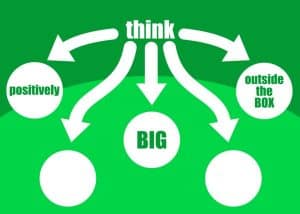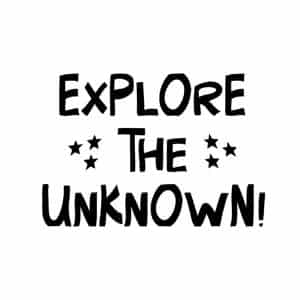Uncomfortability doesn’t feel good until you shift your perspective on what this feeling is revealing.
We’ve evolved as a species due to the safety uncomfortableness brings, yet this often no longer serves us as modern-day humans.
Let’s get into uncomfortability and how it can often be a gift waiting to be unwrapped.
How Uncomfortability is a Strong Opportunity for Personal Growth
- What is uncomfortability?
- Uncomfortability served a purpose 67,276 years ago.
- We feel uncomfortable when things are unfamiliar.
- 5 uncomfortable questions to ask yourself that promote self-awareness.
- Uncomfortability can be a gift in disguise.
- The benefits of beginning to embrace the uncomfortable.
What is Uncomfortability?
Uncomfortability is defined as the ability to create an uncomfortable feeling or state of unrest. Antonym: comfortability. The word uncomfortability does not technically exist. It’s not listed in any dictionary nor does Grammarly recognize it as a word.
Comfortability is however listed in the dictionary.
Go figure.
Uncomfortability Served a Purpose 67,276 Years Ago
In the past, the feeling of comfortability was a way of keeping us on a path that our brain and body felt would serve us.
Imagine you’re a group of Neanderthals walking over 100 miles to find a better water source.
Your tribe has made this trek every year for hundreds of years.
“Your body often becomes the mind by guiding the decisions you make through feeling either comfort or discomfort.”
Distinguishing between the two feelings:
- Feeling comfortable tends to keep you on track and free of thought.
- Feeling uncomfortable tends to elicit doubtful thoughts and stop you in your tracks.
A tribe feeling comfortable is more likely to stay on track and reach their desired destination.
The tribe that feels uncomfortable will likely stop and consider an alternate route.
In modern days we often refer to this feeling as our “intuition.”
We Feel Uncomfortable When Things Are Unfamiliar
Your mind is a prediction machine looking into your past to find a familiar pattern match between old events and similar new events.
When a pattern match doesn’t exist, feeling uncomfortable is the result.
Here are some examples:
- Feeling uncomfortable on a first date.
- Getting the jitters the first time you drive a car.
- Entering a job interview with butterflies in your stomach.
An uncomfortable situation can result from simply being the first time you’ve experienced it.
Anytime you are experiencing something for the first time, shift your perspective on these uncomfortable feelings.
“View uncomfortability as your bodies way of signaling to you this is something new and unfamiliar.”
Be thankful your body has got your back.
Did you know that feeling fear or excitement for this new experience is based on your perspective of it?
Fear and excitement both activate the same neuronal pathways in our bodies.
How we interpret this sensation determines the label we give it and how we view that experience.
Let the unfamiliar excite you!
5 Uncomfortable Questions to Ask Yourself That Promote Self-Awareness
One of the most important skills you can develop to become the master of your mind is self-awareness.
Self-awareness is becoming more conscious of how you think, feel, act, and make decisions.
If taking an introspective view of who you are is new to you, then expect to feel uncomfortable the first time you try it.
Here are 5 important questions to ask yourself to become more self-aware:
- “Where have I been placing most of my attention this week?”
- “Do the thoughts I’m having serve me or do they not serve me?”
- “What’s been my vibe lately?”
- “What thoughts are eliciting the feelings I’ve been having?”
- “What stories about myself do I tend to play in my mind?”
These are certainly uncomfortable questions, but what they reveal is pure gold.
“Each question has the power to make you the master of your mind as opposed to the slave to it.”
I challenge you to ask yourself these 5 questions today and write down your answers.
Resist the temptation to judge yourself or feel like a victim.
Perform this task as if you’re an outside observer gathering unbiased information
Get curious, get uncomfortable, and control your emotions using this effective self-reflective process.
Uncomfortability Can Be a Gift in Disguise
When you shift your perspective on things, the way you view those things changes.
Feeling uncomfortable is no different.
Start viewing feelings of uncomfortability as a gift rather than a burden.
You’ve heard of the comfort zone and the growth zone.
This is exactly what we are referring to here.
“In order to create change and growth in your life, start making the uncomfortable feel more comfortable.”
Here are a few examples:
- Drive a different way to work to make your morning commute more interesting.
- Change your workout routine to promote new muscle growth.
- Start exploring the idea of a new career that pays better.
It’s going to feel uncomfortable at first but you’ll quickly feel a shift in your vibe and energy.
The Benefits of Beginning to Embrace the Uncomfortable
When you begin to embrace uncomfortable feelings, great things can start to happen.
The unfamiliar, the uncertain, the unknown, and the uncomfortable become your source of creating growth,
You create your own reality, and when you create from the familiar, the certain, the known, and the comfortable, you are recreating your past.
When you create your past, nothing ever changes.
“95% of your day consists of the same thoughts, the same feelings, and the same behaviors as the day before.”
Here’s how to start creating change in your life and experience personal growth:
- Start making the unfamiliar become familiar.
- Turn uncertain into certain.
- Begin turning the unknown into the known.
- Start becoming comfortable in the uncomfortable.
This is your ticket to change!
Start becoming the creator of your reality instead of the passive observer of it.
What To Do Next
Your personal growth can skyrocket once you shift your perspective on uncomfortability.
Turn this feeling into your friend instead of your foe.
There will certainly be times when your intuition is spot on, and uncomfortable feelings arise.
Trust these feelings!
Challenge the feelings that your gut instinct knows are preventing you from living your best life.
If you want guidance on executing these strategies, we have a private online coaching group that covers these topics and many more.
“Jump on our email list or better yet, email us directly to be considered as a member.”
Have a fantastic day, and apply the powerful lesson you’ve learned today!
- 5 Components Of Emotional Intelligence [WHAT ARE THEY?] - January 2, 2023
- 20 FREE Emotional Intelligence Images [For You] - January 2, 2023
- Low Frustration Tolerance: What Is It & [HOW TO IMPROVE] - December 31, 2022























